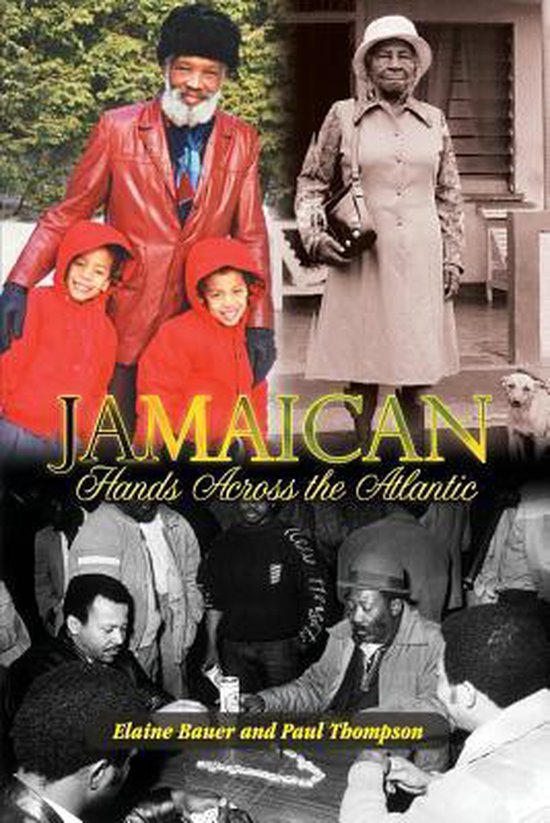
Jamaican Hands Across the Atlantic
For decades Jamaicans - and West Indians more broadly - have migrated, at first to Britain and then to North America. Jamaican Hands Across The Atlantic outlines the pain and pleasure of migration showing how members of the same families migrated to different continents yet succeeded in maintaining a network of contact and mutual supporting that included those left behind.
For decades Jamaicans - and West Indians more broadly - have migrated, at first to Britain and then to North America. Jamaican Hands Across The Atlantic outlines the pain and pleasure of migration showing how members of the same families migrated to different continents yet succeeded in maintaining a network of contact and mutual supporting including those left behind or who chose not to migrate. Based on in-depth interviews, the book provides vivid accounts of the struggles of Jamaican migrants after arrival in Britain or North America at work, in housing and education, the racism encountered, and highlights the key role of women as organizers in the migration effort. These interviews, carried out among migrant and non-migrant Jamaicans, are often marked by humour and colourful Jamaican vernacular, revealing a range of issues at eh heart of the migratory experience. What appears initially to be cause for laughter, later unravels into stories of prejudice, disappointment, underachievement and alienation. At the same time, the migrant life stories offer a precious glimpse of the now disappearing world of Jamaican rural communities, of the fluid networks of extended families, and the role of religion and education in generating ambition and eventual migration. It is particularly interesting to see how Jamaican migrants were able to maintain some of the cultural attitudes which they brought with them, such as child shifting within the extended family, and racial mixing. The book also reveals the experience of those few, in this case mainly Britain, who were able to retire to Jamaica, only to find that after years of absence, both they and the island have so much change that they are now regarded as English. Jamaican Hands Across The Atlantic is a unique account of a type of transnational family, which may become increasingly typical in the new era of globalized world economy and communication. It attests to the resilience and adaptability of a people who refuse to be defined in terms of their geographical birthplace making the book a delightful and inspiring read.
For decades Jamaicans - and West Indians more broadly - have migrated, at first to Britain and then to North America. Jamaican Hands Across The Atlantic outlines the pain and pleasure of migration showing how members of the same families migrated to different continents yet succeeded in maintaining a network of contact and mutual supporting including those left behind or who chose not to migrate. Based on in-depth interviews, the book provides vivid accounts of the struggles of Jamaican migrants after arrival in Britain or North America at work, in housing and education, the racism encountered, and highlights the key role of women as organizers in the migration effort. These interviews, carried out among migrant and non-migrant Jamaicans, are often marked by humour and colourful Jamaican vernacular, revealing a range of issues at eh heart of the migratory experience. What appears initially to be cause for laughter, later unravels into stories of prejudice, disappointment, underachievement and alienation. At the same time, the migrant life stories offer a precious glimpse of the now disappearing world of Jamaican rural communities, of the fluid networks of extended families, and the role of religion and education in generating ambition and eventual migration. It is particularly interesting to see how Jamaican migrants were able to maintain some of the cultural attitudes which they brought with them, such as child shifting within the extended family, and racial mixing. The book also reveals the experience of those few, in this case mainly Britain, who were able to retire to Jamaica, only to find that after years of absence, both they and the island have so much change that they are now regarded as English. Jamaican Hands Across The Atlantic is a unique account of a type of transnational family, which may become increasingly typical in the new era of globalized world economy and communication. It attests to the resilience and adaptability of a people who refuse to be defined in terms of their geographical birthplace making the book a delightful and inspiring read.
| Auteur | | Elaine Bauer |
| Taal | | Engels |
| Type | | Paperback |
| Categorie | | Geschiedenis |